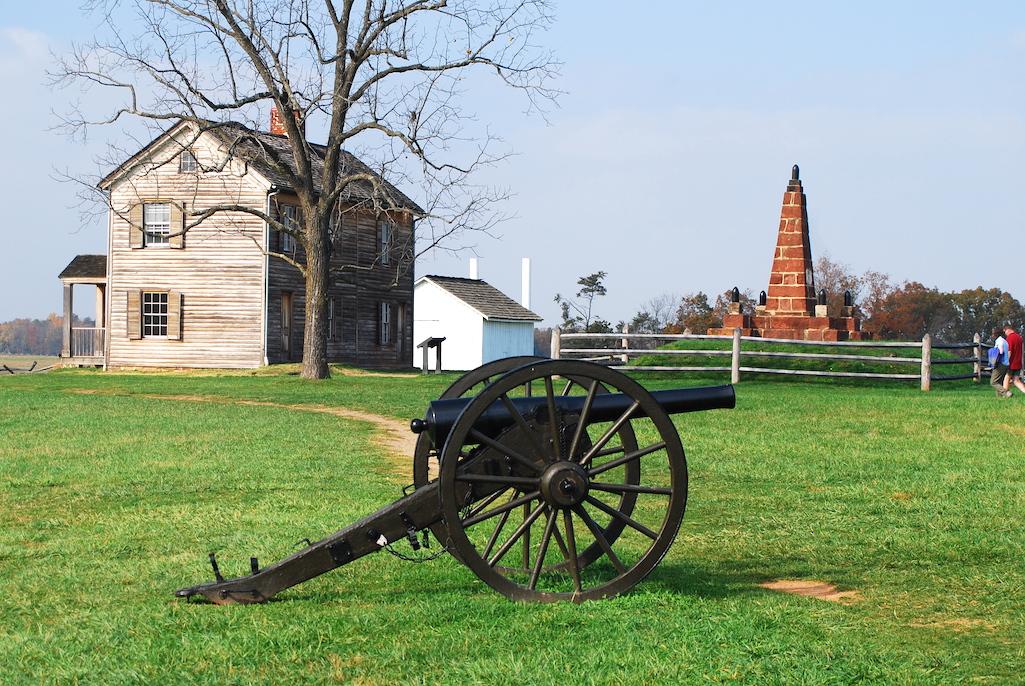
Manassas National Battlefield Park is considered one of Virginia's most endangered historic sites by Preservation Virginia/Kurt Repanshek file
A proposal to build a sprawling digital data center next to Manassas National Battlefield Park has landed the park on the 2022 list of Virginia's "Most Endangered Historic Places."
The listing by Preservation Virgina was spurred by a decision by local county officials to rezone land next to the Civil War battlefield for a "mega data center" complex that would impact the historic landscape just outside the park boundary.
"Locating data centers within technology corridors and away from culturally sensitive areas would convey how local governments value and support the preservation of their irreplaceable historic resources," the organization said in its annual list of endangered sites.
The digital data center planned to go in next to Manassas would cover more than 2,000 acres. Filmmaker Ken Burns has called the proposal the "single greatest threat to Manassas National Battlefield Park in nearly three decades."
The First Battle of Bull Run (First Manassas) was fought near Manassas, Virginia, on July 21, 1861. The Second Battle of Bull Run (Second Manassas) was fought over nearly the same ground during August 28-30, 1862.
Back in 2008, Professor Emeritus Robert Janiskee wrote in the National Parks Traveler that concerns were growing over threats development posed to the battlefield.
The two battles commemorated at the 5,100-acre park, both Confederate victories, were fought less than 30 miles southwest of our nation’s capital in an area of northern Virginia that has experienced tremendous economic growth over the past few decades. Fast-growing Prince William and Fairfax counties are now so heavily developed that green space and large trees have become comparatively scarce in many areas. Locals fear that few mature trees will be left unless development is checked and strict tree protection ordinances are enforced. Another concern at Manassas and other Civil War battlefield parks is encroaching development that obscures historic sightlines. ... Some battlefield parks, such as Fredericksburg and & Spotsylvania National Military Park, are almost completely surrounded by development and exist as historic islands in a modern milieu. In such cases, historic sightlines extend only as far as the park boundary.
In reviewing the current proposal, Justin Patton, the Prince William County archaeologist, wrote that the project would "have a high potential to adversely affect cultural resources in the following forms: indirect effects such as Audio, and Visual; and direct effects in the destruction of the resource. Transportation improvements necessary to implement land use and zoning changes, will likely have an indirect and direct effects on our history as well."
In discussing her group's list of endangered historic sites, Preservation Virginia CEO Elizabeth S. Kostelny said the list "reflects the resilience of the Commonwealth's many historic places that have persisted for generations in support of their communities. The dedication of organizations, local governments, and individuals currently working to preserve these places reflects the very nature of the historic preservation movement- the ability to adapt to challenges and retain relevance in an ever-changing world."
The Virginia's Most Endangered Historic Places program has a track record of success. This past year, previously listed sites including Rassawek, historic capital of the Monacan Indian Nation, River Farm, headquarters of the American Horticultural Society, and the Warm Springs Bathhouses, the oldest spa site in the United States, were saved from insensitive development and neglect. Since the program began, more than 50 percent of sites listed have been saved, 10 percent were lost, and the remaining 40 percent are still being monitored.



Comments
Surely the data center could and should be built some where else. We've lost enough historical sites/monuments in the last couple of years, so leave well enough alone.
We've lost enough historical sites/monuments in the last couple of years,
This proposal for the data center will not cause the loss of ANY hsitorical site or monument. Do you understand tha the data center will NOT be built on any historical site or monument?
geesch